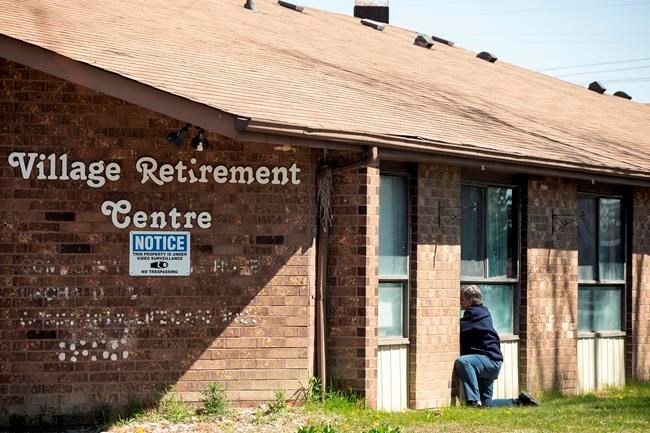MONTREAL — Canada has failed in its duty to protect vulnerable elders in long-term care, according to a highly critical report that examines the issue in light of the COVID-19 crisis.
The report released Friday by the Royal Society of Canada found the pandemic was a "shock wave" that exposed many long-standing deficiencies in the system and caused high levels of "physical, mental and emotional suffering" for seniors.
"Those lives lost unnecessarily had value," reads the report by a working group that was chaired by Dr. Carole Estabrooks at the University of Alberta.
"Those older adults deserved a good closing phase of their lives and a good death. We failed them."
The working group, which was created by the Royal Society's COVID-19 task force of scientists and researchers, said the causes of the failure are complex but are rooted in what they called "systemic and deeply institutionalized implicit attitudes about age and gender."
It found that 81 per cent of Canada's COVID-19 deaths have come in long-term care homes, far higher than what is reported in comparable countries, including a 31 per cent figure in the United States, 28 per cent in Australia and 66 per cent in Spain.
The authors say Canadian homes have allowed staff-to-patient ratios to drop and have increasingly shifted to an unregulated workforce in recent years, even as patients are living longer with diseases that require increasingly complex care, such as dementia.
"(Those unregulated workers) receive the lowest wages in the health-care sector, are given variable and minimal formal training in (long-term care), and are rarely part of decision-making about care for residents," reads the report, which notes that many of these workers report being overworked and suffering from high rates of burnout.
In contrast, the proportion of registered nurses has fallen, and many residents lack access to comprehensive care including medical, health and social services and therapies, even though the needs are greater than before.
The report notes that authorities have failed to listen to the voices of long-term care residents and those who care for them — both groups overwhelmingly composed of women. Women are also more likely to be the unpaid caregivers who are increasingly called upon to fill the gaps in the system, the authors said.
Long-term care homes were uniquely vulnerable to COVID-19, combining an already-sick patient base with a novel disease to which nobody has immunity, the report says. Homes in Canada are often older and feature shared bedrooms and bathrooms, which made containing COVID-19 a challenge.
However, the report also notes that basic infection controls and personal protective equipment were often lacking and that many employees worked in multiple facilities, increasing the chances of spreading the virus.
"We have a duty to care and to fix this — not just to fix the current communicable disease crisis, but to fix the sector that enabled that crisis to wreak such avoidable and tragic havoc," the authors wrote.
The report makes nine recommendations, which it says are geared towards addressing a workforce crisis that leaves homes understaffed and employees underpaid and overwhelmed.
The authors called on Ottawa to develop federal national standards for staffing and training, and to make provincial funding contingent upon meeting them.
The federal government should also ensure data is collected on resident quality of life, care standards and worker satisfaction and ensure it is analyzed by a third-party body, the report says. That data should also take into account disparities caused by race, ethnicity, gender identity, poverty and other vulnerabilities.
Provinces must "immediately implement appropriate pay and benefits, including sick leave, for the large and critical unregulated workforce of direct care aides and personal support workers" and offer them ongoing training and mental health support, the report's authors said.
Unregulated staff should be offered full-time work, and provinces should evaluate "one workplace" policies that prevent employees from moving from site to site, the report concludes.
This report by The Canadian Press was first published July 3, 2020
Morgan Lowrie, The Canadian Press

